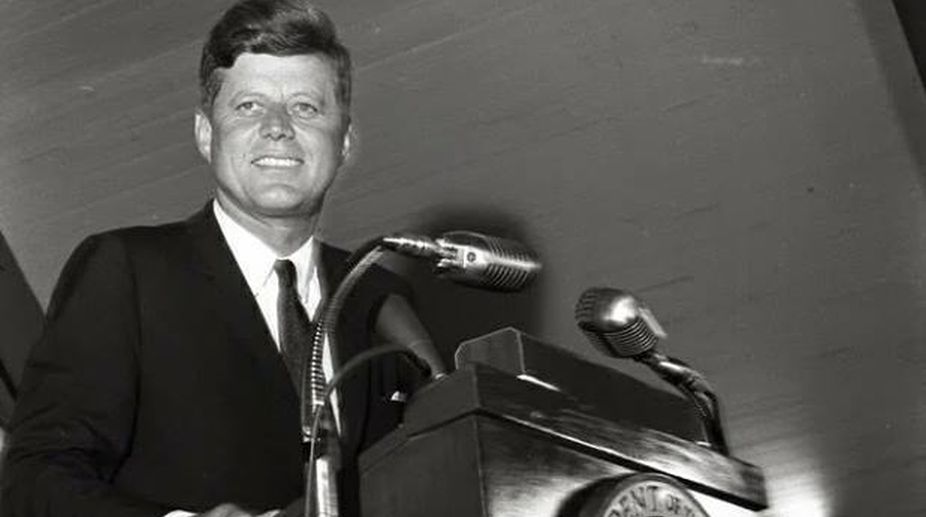JPSC Recruitment Scam: CBI Court Summons 60 Accused
The CBI court has summoned 60 accused in the JPSC recruitment scam, exposing fraudulent mark alterations and favoritism in Jharkhand’s civil services exams.

John F Kennedy (Photo: Facebook)
More than 50 years after the assassination of John Fitzgerald Kennedy, Thursday’s release of the hitherto classified 2,800 files exposes only part of the tormented chapter of US history. Nonetheless, the declassification has prompted historians, researchers and “conspiracy theorists”, so-called, to rummage for details that still shroud the circumstances of the shooting of the country’s 35th President by a certain Lee Harvey Oswald on 22 November 1963.
Having promised to release the data, President Trump has eventually delayed the disclosure of certain documents, saying he had “no choice” but to consider “national security, law enforcement and foreign affairs concerns”, notably the caveat advanced by the FBI and CIA. In a country that is all too frequently roiled by the gun culture, the White House is bound to be wary of what is put on the website of the National Archives.
Advertisement
It would be premature to jump to conclusions on so sensitive an issue, based on a still largely tentative release, and America and the world must await the disclosure on 26 April 2018, indeed the next deadline for the documents. The empirical evidence is still less than comprehensive for a proper reconstruction of history. However, one of the interesting documents unearthed was a memo, written by director J Edgar Hoover, that said the FBI had been alerted of a potential death threat to Lee Harvey Oswald.
Advertisement
According to the National Archives, 88 per cent of the records relating to Kennedy’s assassination were already fully open, and another 11 per cent released but partially “redacted” or edited for publication. It would be pertinent to recall that interest in “conspiracy theories” had surged following the release of JFK, the 1991 Oliver Stone thriller starring Kevin Costner. Congress had passed the JFK Assassination Records Collection Act in 1992 and had mandated that all documents must be released to the public within 25 years.
Thursday happened to be the deadline. In retrospect, it would appear that the power of the cinema prompted the legislature to signal the investigation of a national tragedy. There is less excitement over the release than had been anticipated. Experts wonder whether the new documents will provide any stunning new details about the killing. Yet making public the material ~ or at least most of it ~ would help dispel suspicions of a conspiracy. The chaotic, last-minute nature in which the release was held up might raise misgivings that the intelligence communities do not want to cooperate.
The assassination of JFK remains quite the most controversial chapter in the history of America. The intrinsically academic approach of the National Archives ought to be generally welcomed. Appropriately enough, it has left the inference/analysis of data to historians and researchers. A new chapter can thus be said to have opened in US history. Hopefully, there will be no political spin as with the Netaji files.
Advertisement